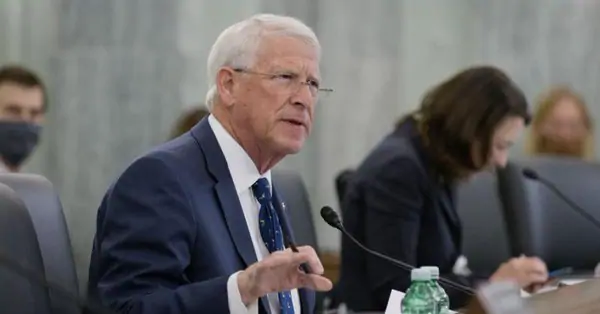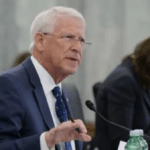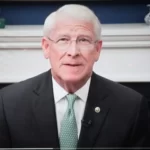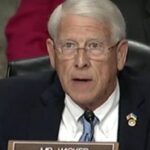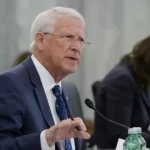Wicker: Global health promotes American security
By U.S. Sen. Roger Wicker (R-Miss.)
Countering China by Supporting Public Health
Healthy, prosperous nations are more peaceful and less vulnerable. They make strong trading partners, with workforces that contribute goods and services to the global economy. Importantly, they produce fewer refugees. Those facts add to the good news of two positive developments: Since the turn of the century, dozens of nations have been declared malaria-free, and in the past thirty years, global malnutrition rates have been cut in half. The fight against these dangers is far from over, but thanks to America’s leadership, many people – especially children – have lived longer, healthier lives.
I rejoice that these individuals have been spared from extreme illness and hunger. I am also grateful for the effect that increased public health has on our national security. Reducing these needs abroad has proven to be a cost-effective way to help protect Americans at home.
Malaria and Malnutrition Create Instability, Illegal Immigration
When a country is experiencing high rates of illness and hunger, its way of life becomes volatile. Its citizens have limited opportunities, open fewer businesses, and live in a state of uncertainty that can be exploited by criminals, tyrants, and terrorists. Food insecurity contributes to mass migration and political tension. Both malaria and hunger stunt individuals’ physical and cognitive development. Malnutrition is such a destabilizing force that our defense leaders included it in the National Security Strategy, listing it as a threat to the peace that protects American interests.
Instability Makes Nations Vulnerable to Chinese Influence
The Chinese Communist Party (CCP) has taken note of these trends. Under the leadership of the dictator Xi Jinping, the CCP hopes to shift the balance of world power toward Beijing, one country at a time. It sees malnutrition and malaria as conditions to exploit, not as problems to be solved. China has been visiting needy nations in something of a charm offensive. It has offered medical treatment and food assistance alongside economic development resources – but with malevolent intentions.
China’s aid is in no one’s interest – except Xi Jinping’s. He wants to set these less prosperous nations up for dependency instead of self-sufficiency. When China offers economic aid, it often locks recipients in crippling debt and unethically extracts natural resources, such as critical minerals. Its medical interventions are often ineffective, ineptly delivered, or made of flimsy materials.
American Assistance is a Cost-Effective Way to Promote Peace
Unfortunately, desperate leaders in needy countries around the world are willing to take a chance on Chinese assistance. The United States can offer a better way, one that helps developing nations and effectively counters Chinese influence.
Leaders in Congress, the armed forces, and in our state have understood the overlap between national security and public health. I serve as co-chair of the Malaria and Neglected Tropical Diseases Caucus, which supports research and interventions into the ever-changing malaria disease. I helped author the Global Malnutrition Prevention and Treatment Act. That law reformed American food assistance policy and required the administration to give Congress regular updates on its progress.
The U.S. military has found health assistance to be a valuable tool in promoting peace. For example, American service members have partnered with the Kenyan Defense Forces to develop and distribute malaria treatment. This work improves health outcomes and empowers local leaders. It also strengthens international relationships in a continent where China craves influence.
Our state’s research universities have also become involved. Mississippi State University recently hosted a conference on the overlap between food security and conflict. Alcorn State University has become a leader in the fight to solve global hunger, developing agricultural best practices that empower farmers worldwide. I look forward to continuing to support such win-win projects – that shore up American security while helping those in need.
Note: This article is the weekly Wicker Report from U.S. Sen. Roger Wicker, written by the Senator and provided by his office. Any opinions expressed here are that of the author and not necessarily that of this publication.
